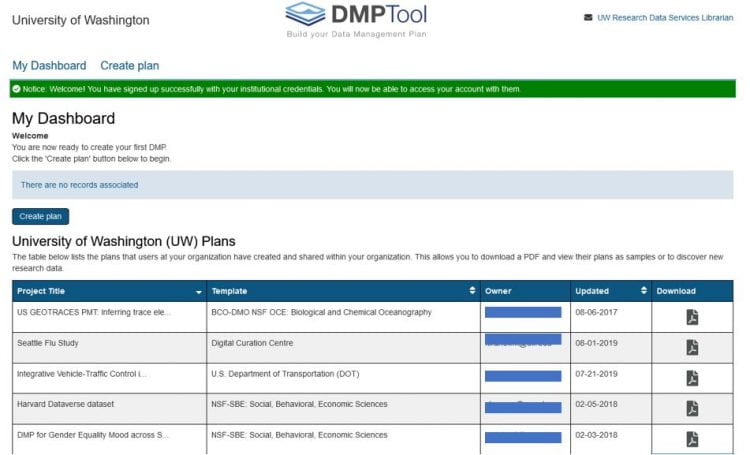November 23, 2021
What is a data management plan, why is it important, and how do I make one?
Last year, the National Institutes of Health (NIH) announced that it would be instituting a new Data Management and Sharing Policy, effective 2023. The new policy establishes the requirement that research projects funded by the NIH must submit a Data Management and Sharing Plan. This announcement follows a wider trend of many other funding agencies requiring these plans.
Why are funding agencies requiring Data Management Plans?
Data Management Plans, or DMPs, are documents that describe how data will be collected, stored, analyzed, preserved, and shared throughout the research process. By establishing a DMP, funding agencies and other researchers can conveniently review a research team’s methods for data collection and analysis. A DMP also ensures that the researchers on a team know the scope of their responsibilities, exactly where to store and locate their data, and how they will be preserving and sharing their data for future use. Sharing research data allows researchers to review, reuse, combine, and expand upon previous research; it also allows funding agencies to conserve resources and cut down on unnecessary data duplication. Beyond benefits to the greater community, sharing data is also associated with greater citation rates for the researcher (Piwowar, Day, and Fridsma, 2007).
How can the UW Libraries help you with a DMP?
UW Libraries has staff and tools available to help researchers create DMPs, either for the first time, or by creating a template to be reused. DMPTool is a web-based service that allows researchers to easily create Data Management Plans from a series of convenient templates, or to create their own with the help of example plans and helpful resources. Since the University of Washington is affiliated with DMPTool, UW students, staff, and faculty can easily create an account by signing up with their UW NetID. Once signed in, users can also see plans created by other UW creators.

Image: A selection from the “Write Plan” tab of DMPTool. “Selection and Preservation” has been selected, which provides the user with a field to add text. To the right, resources for guidance and the comments tab are visible.
When creating a new plan, DMPTool takes you step-by-step through the necessary components of a solid Data Management Plan. Each section of the plan includes helpful prompts and additional information to inform your writing from the Digital Curation Centre, the DMPTool help pages, and sources from your affiliated institution. You can even link your plan to your Open Researcher and Contributor ID (ORCID), another important tool for researchers.
For more information on creating your own Data Management Plan, using DMPTool, or any other area of the data management process, contact the Scholarly Communication and Publishing (SCP) Team at uwlib-scp@uw.edu. The SCP Team is dedicated to supporting researchers and increasing open access to scholarly materials through a suite of services, including open access publishing, author’s rights, data management, digital preservation, and much more.
You can learn more about Scholarly Communication and Publishing on their LibGuide, or contact them directly using uwlib-scp@uw.edu.
###
